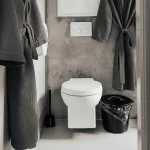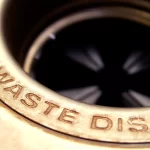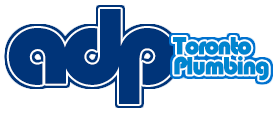Drain clogs: the frustrating, tedious, often disgusting problem that everyone encounters at least once in their life. It’s often accompanied by its friends Panic and Mess. Hopefully, with this article, you can identify the slowing down of the drain before it gets to the point where it overflows and cleans your clogged drain before it reaches disaster levels. Here’s the 101 on dealing with a Scarborough drain clog:
#1: How Drains Get Clogged
How do drains get clogged? The answer probably isn’t all that surprising. The number one cause of clogged drains is grease, with hair coming in at a close second. You might not be pouring grease down the drain by the cupful, but a little bit of grease on a frying pan can build up over time. Tiny bits of food that escape your clutches or that you see and think “ah, one Kraft Dinner noodle isn’t going to plug the drains” all build up after time. That time you don’t clean the hair out of the shower will come back to bite you. The truth is that you have to vigilant about your drains. Without regular drain cleaning, chances are you’re going to experience some not-so-great clogs.
#2: Dealing with Different Types of Clogs
There are all kinds of clogs that occur in drains. There are small clogs, big clogs and the kind of clogs that require reinforcements. A monthly drain cleaning doesn’t mean that you need to call in a plumber every month, in fact, the whole point is to avoid having to call in a plumber at all to deal with a Scarborough drain clog. The thing is, you need to understand what kind of clogs you’re dealing with and what you should and shouldn’t do. You could have a clog that’s caused by grease, food build-up, dirt, hair, and other bits. Or you could have a clog that’s caused by tree root invasion further down the pipeline. Perhaps the piping has eroded and has managed to cause a blockage, the drain could even be in need of repair.
#3: How NOT to Unclog a Drain
Don’t immediately reach for the Drain-O to unclog your pipes. The chemicals in it can actually cause damage to the pipes as it’s corrosive and it might not work as most commercial drain cleaners are designed for specific types of clogs. Besides, it not environmentally friendly at all.
Don’t immediately resort to taking apart the pipes under the sink, either. It might seem like an obvious thing not to do but it might also seem like an obvious answer. There’s a clog and most sinks have U-shaped bend in the pipe that can be detached. After all, that’s what a plumber would do, right? Wrong. Don’t touch the pipes.
#4: When to Call Your Plumber
If the clog is in a kitchen sink, it’s most likely grease or food. Start with boiling water (unless your pipes are PVC, then just use hot water to avoid melting them). If a few kettles of boiling water don’t do it then move onto the DIY methods to unclog a drain in Scarborough. Get a cup of vinegar and a cup of baking soda. Pour the baking soda powder into the outlet, then follow with the vinegar. Cover the drain and let it bubble away for a short period. Then put in some hot water. If that still doesn’t work, then move onto the plunger or drain snake. If that doesn’t work, it’s time to call in the pros.
A professional plumber in Scarborough has the experience and the know-how to address the problem without making it worse. A professional will ask you if you’ve already tried the above steps, as usual, they will work. If they don’t, it means your Scarborough drain clog is a lot more serious and now requires someone with the skills and training to deal with it.






